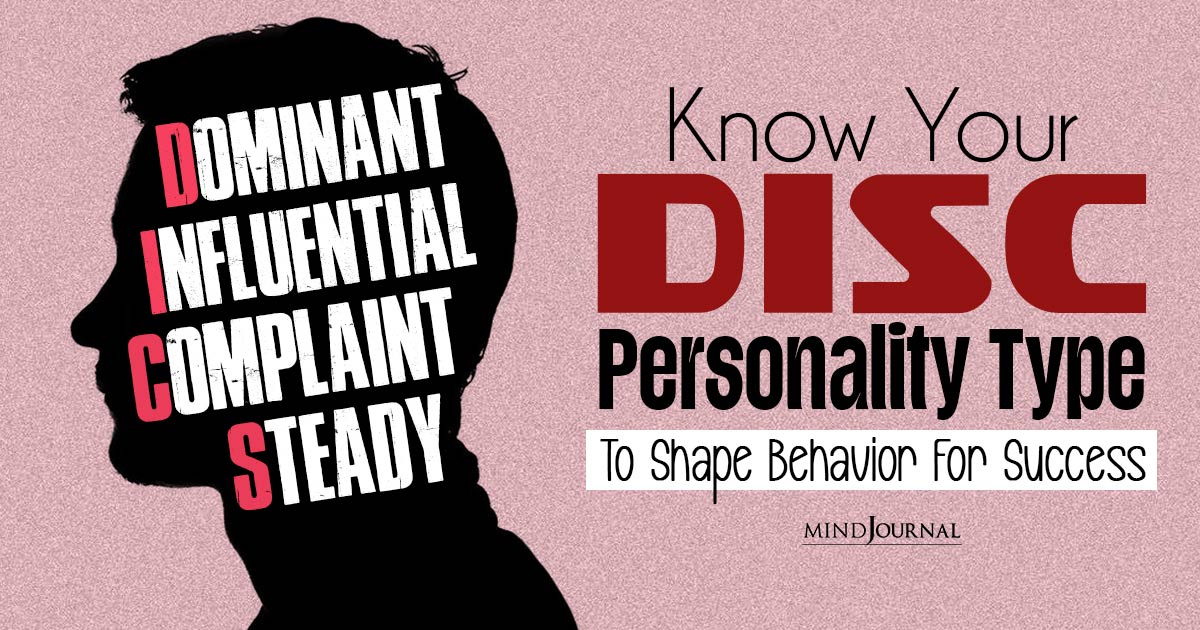Are you hard working, goal-oriented and optimistic? Do you constantly reach new milestones and inspire others along the way? Then you just might have a ‘Turbulent Personality’. Read on to find out if you have the signs of a turbulent personality.
What is a turbulent personality?
Turbulent personality, and its polar opposite – assertive personality, are personality traits that indicate our confidence, capabilities and decision making skills. Turbulent personalities tend to be perfectionists and work hard to prove their worth. Turbulent people are –
- Goal driven
- Strive hard to succeed
- Detail-oriented
- Constantly focus on self-improvement
However, people with turbulent personality traits are prone to anxiety, depression, impulsivity, anger, vulnerability and self-consciousness. Although they are sensitive, they counterbalance these negative traits through personal development and by achieving new goals. Despite being burdened with poor self-esteem and self-doubt, individuals with a turbulent personality are very detail-oriented and prefer to solve minor problems immediately before they become major obstacles.
They are always driven to do more and constantly look for issues they can deal with. As a result, they often look for negative outcomes in positive situations. Although this may seem like they have a pessimistic outlook in life, these individuals are typically highly optimistic.
Related: The Best Trait Of Each MBTI Personality Type
People belonging to the turbulent personality type are attentive and careful individuals who perfectly balance their anxiety and worries with positive and focused action to prove their own worth. Their enthusiasm and positive attitude can also inspire and bring hope to others.
But when not managed properly, such enthusiastic energy can make others feel overwhelmed, overpowered and minimized. Showing empathy along with optimism can make turbulent personalities a better leader.

8 Signs of turbulent personality
So, do you have a turbulent personality? Here are some of the most common signs you have a turbulent personality –
1. You’re a perfectionist
When you have turbulent personality characteristics, you are always driven to do more, accomplish more and be more. You are always striving to get better and be perfect in everything you do. Although this can help you improve yourself constantly, it can also lead to frustration and burnout in the long run, as we all know perfection is a myth. When you push yourself beyond your limits every single day and refuse to settle, your emotions will become difficult to manage.
As turbulent people fail to live in the moment or feel grateful & satisfied with what they already have, they rarely feel happy in life. Perfectionism is undoubtedly one of the most notable turbulent personality signs.
Related: 9 Signs You Might Be a Perfectionist

2. You’re sensitive
Being overly sensitive to your surroundings, you tend to be highly anxious most of the time. This sensitivity makes you prone to the spotlight effect, where you overestimate how much others notice or observe you. Feeling like you’re being judged by everyone can make you feel queasy and concerned. You are also constantly thinking about what probable problems may arise in any given situation, causing you to miss out on the positive aspects of the moment. However, your high sensitivity makes you pay attention to even the tiniest detail that others may miss out on.
3. You overthink
Overthinking and worrying excessively is an inherent part of a turbulent personality. You are always worrying about something, whether it is something you said or how someone behaved with you. Analyzing people and situations is a full-time job that you take very seriously. Turbulent people think about every small detail which leads to more stress.
You also worry about your goals and abilities regardless of how many obstacles you have overcome or what you have already achieved. However, as you constantly worry about things and predict the worst possible outcome in every scenario, you are never really disappointed with failures. You are more focused on the mistakes, learning from them and getting better the next time.
Related: 11 Mental Tricks To STOP Overthinking
4. You focus on details

Focusing on the tiniest details comes naturally to you. And this ability to look at the details gives you the ability to accomplish things as perfectly as possible. This ability makes turbulent personalities great leaders and mentors as the way they work is something to marvel at. But this can also become a source of stress as being concerned with every little detail can affect your mental health in the long run.
5. You’re never satisfied
People with a turbulent personality and turbulent behavior are less likely to be satisfied with their accomplishments, abilities, relationships and life. You constantly feel that you need more – to have more and to be more – to be happy, which leads to dissatisfaction. As you are a perfectionist, you rarely feel happy with your accomplishments, simply because they did not meet your standards of perfection. Turbulent personalities often feel exhausted due their lack of satisfaction. But this dissatisfaction acts as a motivator that drives you forward to boost your skills and gain mastery over your fields of interest.
Related: 5 Ways Gratitude Improves Our Mental Health
6. You are motivated by achievements
People with a turbulent personality are always focused on achieving their goals as their sense of self-worth and self-esteem is tied to the success they achieve. You believe others will love, value and respect you only if you are successful. You take your career seriously and always work to the best of your abilities, whether for your career, personal life or relationships.
7. You doubt yourself
Individuals with turbulent personalities are riddled with self-doubt. They repeatedly compare their skills and accomplishments with others, are unable to accept criticisms, tend to be pessimistic and are too conscious about themselves and their problems. As they do not believe that they deserve the success they have achieved, they suffer from imposter syndrome, a psychological phenomenon where high-achieving people doubt themselves and believe they are “a fraud”.
You downplay your achievements even when you have worked really hard for them. You don’t feel you are deserving of praise or recognition. You are afraid that one day people will realize you are not as talented as they think and all your accomplishments will be snatched away from you.
Related: The Imposter Syndrome
8. You have a positive attitude
One of the best things about having a turbulent personality is your unending optimism. You are highly positive and optimistic in every thing you do and you believe that all challenges can be overcome with dedication, commitment and hard work. You believe that there are no problems that can’t be fixed and this infectious optimism makes you a great leader and motivator for others.
Turbulent personality in the MBTI
Both turbulent and assertive personality traits are mentioned as a part of an updated version of the original Myers–Briggs Type Indicator (MBTI), a tool used to help us understand our personality. According to the MBTI, 16 personality types are identified through a four-letter acronym involving four preferences of each type, such as ESFP, INFJ or INTJ.
However, according to a new theory, a fifth letter can be added to the four-letter acronyms to denote either the turbulent personality trait (-T) or the assertive personality trait (-A). Hence, according to the new model, a person with an INFJ personality can be further classified as an INFJ-T personality type or an INFJ-A personality type.
The updated T-A model incorporates the neuroticism trait into the Myers-Briggs test, even if it is not officially affiliated.
Related: Myers-Briggs Type Indicator (MBTI)

Sometimes being ‘turbulent’ is ‘good‘
Having a turbulent personality can be a blessing in disguise. People with such personality traits are hard working, focused, considerate and introspective. However, they do suffer from self-doubts, poor self-esteem and low self-confidence. And perhaps, this is their superpower – this is what keeps them going to do more and achieve more than others.
Turbulent personalities are highly optimistic and are determined to reach their goals by overcoming all obstacles. They love solving problems, whether for themselves or their loved ones, and are very careful in their approach towards life.
Related: 17 Signs You Are An Overachiever And How To Deal
Can you relate with some or most of the signs of a turbulent personality? Let us know below.
Frequently Asked Questions (FAQs):
What is the difference between assertive and turbulent personality
People with an assertive personality are relatively more relaxed, calmer and are less prone to anxiety. Turbulent personalities, on the other hand, are perfectionists, sensitive, prone to worry and are highly self-conscious.
Is it better to be assertive or turbulent?
No particular personality trait is better or worse. Both are different types of personalities with their own strengths and weaknesses. As long as you can manage the negative aspects, you can live a happy, healthy life.
Can a turbulent personality become assertive?
A person with a turbulent personality can change their reactions and perspectives to become more assertive. But it is best to accept yourself as you are, acknowledge your weaknesses and hone your strengths as a turbulent person. We can reach our fullest potential by being our genuine self.










Leave a Reply
You must be logged in to post a comment.